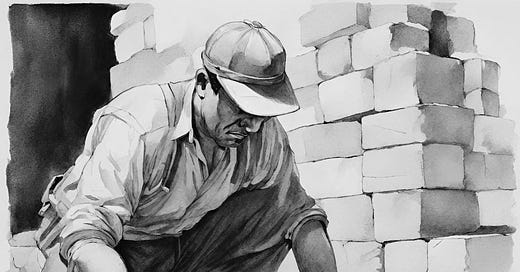There's an exception to every rule and an odd duck in every flock. True enough, and it makes life interesting—the exception is the oddity, the one that moves right when the group moves left. However, when it comes to reentry in its basest form, there are few, if any, exceptions. There is always (99.9% in any case) one core behavioral issue that has contributed (more than anything else) to the fall into incarceration, homelessness, or some other form of chaos.
Identifying, accepting, and managing this is critical to success for those reentering from the harshest of life situations. I call this Personal Job One (PJO). To stay on track and avoid falling back into old patterns, PJO must come first. It's the foundation upon which everything else in reentry life depends.
For those battling addiction, their PJO is getting and staying clean and sober. For others, it might be managing a mental health condition by staying on their meds and continuing with therapy and self-care. For those rebuilding after incarceration, it means staying out of situations or away from people that could lead back to trouble.
The message is clear to someone reentering from situations like this: addressing your PJO isn't optional. It's not something to put on the back burner while the focus shifts to other (important) things, like finding a job or a place to live. Because the truth is, none of those other things will stick if you don't have a solid foundation. Think of it like building a house. You wouldn't start with the roof or the walls. No, you'd start with a strong, level foundation because everything else rests on that. PJO is the same. It's the bedrock on which to build your new life.
Now, I understand the many urgent needs that can overwhelm you when starting over. However, it's crucial to prioritize your PJO. Neglecting it could lead to losing your progress in other areas. Imagine finally landing that job but then losing it because you relapsed. Or getting your own place but ending up back on the streets because you couldn't manage your mental health. The stakes are high, and your PJO is your lifeline.
So, how do you identify your PJO and make it non-negotiable? Start by getting ruthlessly honest with yourself. What is the one thing that will most likely lead you back to a dark place if you don't do it? What do you need to do every single day to stay on track? Once you've named it, make a plan. What does committing to your PJO look like daily? What support do you need to stay accountable? Who can you reach out to for help when you're struggling?
And then, make it your north star. Let your PJO guide every decision, big and small. Before you say yes to anything, ask yourself: Does this align with my PJO? Will this choice make it easier or harder to stay committed?
Remember, it won't always be smooth sailing. There will be days when your PJO feels like a heavy burden, and you'll be tempted to set it aside for something more pressing. But I assure you - if you keep your PJO at the forefront, everything else will fall into place. Not instantly, but one day at a time, one choice at a time.
As you build your foundation, brick by brick, you'll see your life transform in ways you never thought possible. You'll find a strength and resilience you didn't know you had. And you'll discover that, no matter how far off track you've gotten, it's never too late to start over and create the life you want.
My approach to reentry includes numerous early-stage attributes, such as adopting a Free Agent mindset, understanding the Marketplace, and being a Seller of Service. As critical as these puzzle parts are, they pale compared to addressing your PJO.
It won't be a straight line, and it won't be perfect. But if you keep showing up for your PJO, one day at a time, I know, because I’ve seen it happen many times, that you can rebuild your life on a foundation that will weather any storm.
You've got this.
Onward!




